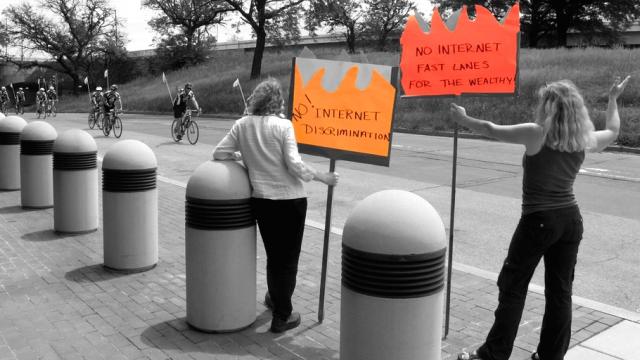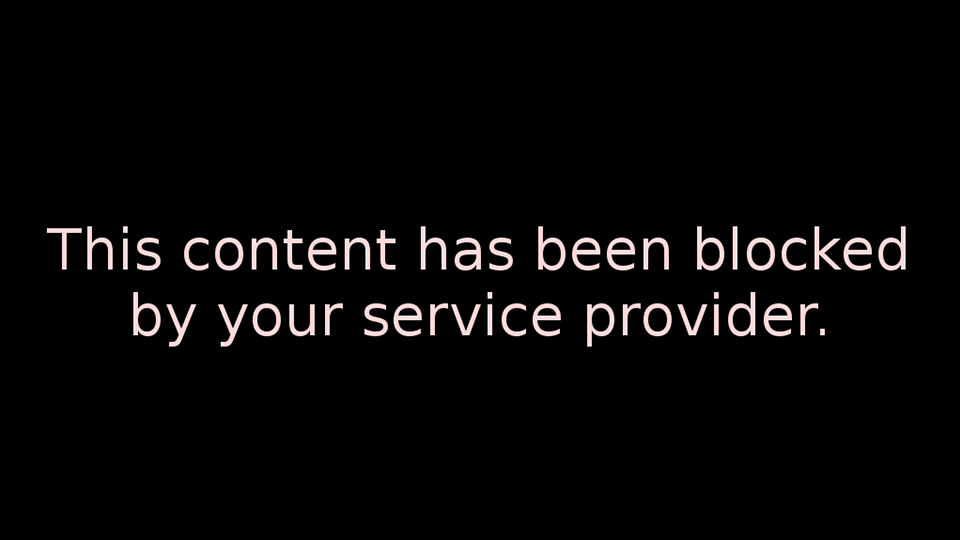
Barack Obama called for “the strongest possible rules to protect” the open internet on Monday and came out against proposals championed by cable and telecoms companies to create fast lanes for the web.
The president’s statement comes as the Federal Communications Commission (FCC) prepares to publish new rules to regulate the internet after a series of legal defeats at the hands of telecoms and cable companies.
“An open internet is essential to the American economy, and increasingly to our very way of life. By lowering the cost of launching a new idea, igniting new political movements, and bringing communities closer together, it has been one of the most significant democratizing influences the world has ever known,” Obama said.
The president came out firmly against a proposal that would allow cable companies to create “fast lanes” for higher paying customers. Cable and telecoms companies have lobbied for fast lanes, arguing that companies like Netflix should pay more for the large amount of bandwidth they use.
Opponents argue such a move would create a tiered internet with faster service for those who can pay, and end “net neutrality” – the principle that all traffic is equal on the web.
“Net neutrality has been built into the fabric of the internet since its creation — but it is also a principle that we cannot take for granted. We cannot allow internet service providers (ISPs) to restrict the best access or to pick winners and losers in the online marketplace for services and ideas,“ wrote Obama. He said the FCC should impose “the strongest possible rules to protect net neutrality.”
Net neutrality campaigners cheered the president’s statement. David Segal, executive director of Demand Progress, called it a “huge blow for the cable companies that seek to establish fast and slow lanes on the internet.”
The telecoms and cable industry said they were stunned by the news and called Obama’s proposals unworkable. Telecommunications Industry Association CEO Scott Belcher said he was “deeply concerned” by the president’s proposals and they would “set the industry back decades.”
Obama’s move looks set to start a heated political debate in Washington, where Republican Senator Ted Cruz said on Twitter: “Net Neutrality” is Obamacare for the Internet; the Internet should not operate at the speed of government.”
The president’s move will place extraordinary pressure on the FCC, which is an independent agency but whose senior figures are appointed by the president. Chairman Tom Wheeler is a Democrat, but the FCC’s board is split between Democrat and Republican members and the Republicans have shown clear opposition to imposing more regulation on internet service providers.
After receiving more than 4 million comments from the general public, the FCC had reportedly been discussing a “hybrid” solution that would have allowed tiered services but imposed stricter rules to protect customers. The proposal met with stiff opposition from net neutrality supporters, who now have the backing of Obama.
The president set out four “commonsense” rules he would like to see the FCC impose:
-
No blocking. If a consumer requests access to a website or service, and the content is legal, an internet service provider (ISP) should not be permitted to block it.
-
No “throttling.” ISPs should not be allowed to intentionally slow down some content or speed up others – a process often called “throttling.”
-
Increased transparency. Internet service is not just about the so-called “last mile” – the connection to a customer’s home, said Obama. The FCC should monitor for potential abuses across the network.
-
No paid prioritization. Obama came out firmly against “fast” and “slow” lanes arguing against cable firm’s charging higher fees for faster service. He called for an “explicit ban on paid prioritization and any other restriction that has a similar effect.”
Obama said: “The FCC is an independent agency, and ultimately this decision is theirs alone. I believe the FCC should create a new set of rules protecting net neutrality and ensuring that neither the cable company nor the phone company will be able to act as a gatekeeper, restricting what you can do or see online.”
Wheeler called the president’s comments an “important and welcome addition to the record” and promised to take them into account in the commission’s deliberations. “From the beginning, I have pledged to finally bring to an end the years-long quest for rules that are upheld in court,” he said.
Supporters of net neutrality supporters welcomed president’s comments. Holmes Wilson, co-director of the Fight for the Future advocacy group, said: “Thanks to the second largest online protest in history, nearly 4 million comments, White House and FCC phone lines ringing off the hook, and even nationwide street protests, President Obama finally gets it, and can say so.”
He said the FCC should reclassify internet service, under Title II of the Communications Act, to give it “common-carrier” status, which would give the FCC far wider powers of regulation.
“At this point it should be unthinkable that Tom Wheeler would defy the American public and the president, but we hope President Obama is prepared to demote him if he doesn’t move forward in good faith with Title II reclassification,” he said.
Cable companies and others have been fighting hard to stop the FCC imposing Title II status on internet services, arguing it will stifle innovation and introduce unnecessary red tape.
3 WAYS TO SHOW YOUR SUPPORT
- Log in to post comments












